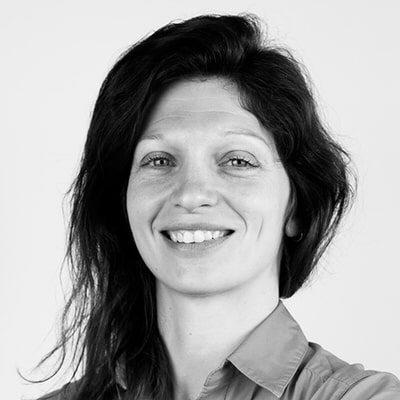Launched in mid-2023, REMMA is a European platform dedicated to the online purchase and sale of second-hand, verified and partly guaranteed medical equipment. With a set of specifications, requirements and a regulatory framework on par with those of online sellers that provide new equipment, this young marketplace aims to expand its catalog further. We spoke with Alexandre El Harouchy, co-founder and CEO of REMMA, who aimed to establish a company with a “positive impact” on the environment while offering quality services in the healthcare sector.
37-year-old Alexandre El Harouchy already boasts substantial entrepreneurial experience: He has founded multiple startups in regulated sectors and launched three marketplaces. He was seeking a new idea with a significant added component. He wanted it to have an impact. He explained:
“My father retired just over a year ago, and as a surgeon, he found himself with a lot of equipment to sell, sometimes brand new and still in the packaging. I began to look at this sector and I saw that there was ongoing regulatory development in two areas. First, a decree came into force in France on August 31, 2022, stating that hospitals must now consider 20% of their purchases as second-hand.
Additionally, while Europe has allowed this since 2010, in 2022 France agreed to allow healthcare professionals to sell medical equipment to each other. Up until now, French doctors could not engage in commercial activities. France finally agreed to allow this and set up the framework.”
Four Regulated Categories of Medical Equipment
France has thus established four categories of “heavy” medical equipment among which healthcare professionals (doctors and medical establishments) are permitted to sell to one another:
1. All medical imaging equipment, including scanners and MRI machines
2. Standard medical devices
3. In vitro medical devices found in laboratories used to collect organic material inside the machine
4. Single-use medical equipment


Alexandre El Harouchy said:
“These four categories cover 800,000 items, which is almost 100% of all medical equipment. However, the regulations differ by category. For example, to sell an MRI machine, you need approval from the French Regional Health Agency (ARS).
At REMMA, the technical challenge was integrating this entire regulatory process, including the involvement of the ARS, into the sales process. So today, on our platform, you can find scanners for sale at €580,000.”
The Same Services As When Purchasing New Equipment
El Harouchy’s goal was to create a second-hand website with the same set of specifications, services and standards as a genuine e-commerce platform.
Therefore, REMMA offers equipment eligible for a one-year warranty, or even up to 24 months depending on compliance with the specifications for the equipment being sold, and for machines less than seven years old. The equipment is inspected and approved by a technician and comes with a maintenance log. If it doesn’t work, REMMA refunds the buyer.
The platform also provides various financing options, including one-time payments by credit card or up to 60 monthly installments through a banking partner (especially for the purchase of equipment priced at €40,000 or €50,000).
They also handle the shipping. If the equipment weighs less than 70 kg and is less than one cubic meter, REMMA will take care of it. If it’s over 70 kg or more than one cubic meter, a specialized carrier in collaboration with REMMA manages the shipping.
Starting in 2024, some equipment may also be available for rent. REMMA is also working on auction platforms that won’t be accessible to everyone and will be highly regulated.

“We are a true marketplace. People can purchase equipment online on our platform and we earn our revenue from sales. But we also aim to establish a high level of credibility so that the buyer feels they have access to the same services as when buying new equipment: The product is guaranteed, it can be paid in installments, it’s shipped very quickly (to maximize its profitability as soon as possible) and soon it can be rented, etc.
To make the marketplace valuable, we have made sure the information is clear, with professional photos of each product, detailed technical specifications, a product description of the product’s condition, downloadable product technical data sheets, etc. Otherwise, everyone would bypass us, and there would be no incentive to go through a trusted third party.”
One of the significant challenges is also maintaining sufficient stock with an extensive and inexhaustible catalog while avoiding the fluctuations and costs of inventory. Currently, REMMA has nearly 2,500 items, and one of its teams is responsible for finding sellers in France and Europe (brokers, hospitals, clinics, doctors, resellers) to assess their inventory and determine if they have equipment to sell.
Quality and Medical Device Vigilance
Does the quality of the equipment remain similar or very close to that of new equipment? Alexandre El Harouchy explained:
“One part of the existing regulations is related to medical device vigilance, which means always knowing what has been done previously with the purchased equipment. It’s exactly like the maintenance log of an airplane: We know the day the machine was first started, the number of hours it has been used, and every time maintenance was carried out on the machine.

Therefore, every time we acquire a machine, we have the full history of its breakdowns, functionalities, failures, parts that were replaced or not, etc. Based on this data, we have the ability to determine if it is functional or not.
Especially since we deal with buyers who are knowledgeable and will have the capacity to assess the functionality of the machine themselves. Therefore, we must be impeccable in this regard. Each machine has its maintenance log, which is a legal requirement, and we are obligated to publish complete information about the machine.”
50% Cheaper on Average
We are talking about machines that cost €50,000 or €80,000 and are worth €200,000 when new.
“We will not guarantee a €100,000 machine if it does not scrupulously meet the specifications, which include: Is the machine less than seven years old? Does the seller have the machine’s maintenance log? Has a technician certified the machine’s functionality within the last three months? Does the seller possess this certificate?
If all these conditions are met, we resell the machine on our platform. If it does not meet all these criteria, it is not in our interest to list it on REMMA. This brings us back to being a trusted third party and our credibility.”


El Harouchy added:
“This is the difference between a broker and us: We verify all the information, certify that the information is true, and we even provide financial guarantees through our warranty system.
This is how the buyer feels completely at ease. They see a level of service and requirements very close to that required of new equipment, with a guarantee of compliance with regulations, all while paying less; It’s worth it.”
On average, for equipment eligible for a warranty (less than seven years old), REMMA offers equipment that is 35% cheaper than new equipment. For equipment not eligible for a warranty but still in good working condition, the equipment is 60% cheaper than new equipment. On average for both categories, we are 50% cheaper than new equipment.
Environmental Goal
By allowing the resale of equipment that hospitals no longer want for certain reasons even though it is still in perfect working condition, REMMA’s intrinsic goal is environmental.
“For us, the notion of impact is crucial. We are part of a research group working on the impact of decarbonization on health.
Healthcare accounts for 8% of the global carbon footprint, which is five times more than all commercial aviation, so it’s enormous. Therefore, for me, it was important to create a company with a positive impact, one that helps save human lives while ensuring the preservation of other lives and Life in general.”
(Photo credit: REMMA)











